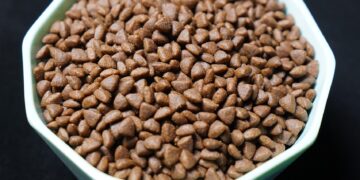Natural vs. Commercial Dog Health Food: Which is Better?
Choosing the right food for your furry friend can sometimes feel like navigating a maze. With endless options on the market, it’s crucial to understand the benefits and drawbacks of natural and commercial dog foods. This article aims to delve deeply into this topic, helping pet owners make informed decisions that promote the health and well-being of their pets.
Understanding Dog Health Food
Before comparing natural and commercial dog foods, it’s essential to understand what each term really means in the context of pet nutrition.
What is Natural Dog Food?
Natural dog food generally refers to diets that are free from artificial colors, flavors, and preservatives. Ingredients in natural dog food should be recognizable and often consist of whole foods such as meats, vegetables, and grains. This type of diet mimics what dogs might eat in the wild, contributing to its growing popularity among pet owners.
What is Commercial Dog Food?
Commercial dog food, on the other hand, is what you commonly see on shelves in pet stores and supermarkets. These foods are usually processed and might include added nutrients necessary for your dog’s health. They can come in dry (kibble), wet (canned), or semi-moist forms and often cater to specific nutritional needs such as age, weight, or health issues.
Pros and Cons
Each type of dog food brings its unique set of advantages and challenges that can affect your decision.
Advantages of Natural Dog Food
- Enhanced Palatability: Many dogs prefer the taste of natural foods because they are made from real meat and vegetables.
- Potential Health Benefits: With less processing, natural foods often retain more nutrients, which can be better for your dog’s digestive system and overall health.
- Fewer Allergens: Natural foods typically contain fewer artificial ingredients, reducing the risk of allergies.
Disadvantages of Natural Dog Food
- Shorter Shelf Life: Without preservatives, natural foods can spoil more quickly.
- Higher Price: The cost of premium ingredients in natural food can be higher than that of commercial foods.
- Inconsistent Nutrient Levels: The nutrient levels in natural foods can vary, making it crucial to check if they meet all your dog’s dietary needs.
Advantages of Commercial Dog Food
- Complete Nutrition: Formulated to be nutritionally complete, commercial foods are designed to meet all of your dog’s dietary needs.
- Convenience: The long shelf life and easy availability make commercial food a convenient choice for many pet owners.
- Cost-Effective: Generally, commercial foods are more budget-friendly and come in larger, economical packages.
Disadvantages of Commercial Dog Food
- Artificial Ingredients: Some brands use artificial colors and preservatives, which might not be ideal for all dogs, especially those with sensitivities.
- Generic Formulas: Many commercial foods use generic formulas that might not cater to the specific needs of your dog.
- Recalls and Safety Concerns: Occasionally, large-scale recalls due to contamination concerns can make pet owners wary of commercial options.
Which One Should You Choose?
The decision between natural and commercial dog food should be based on your dog’s specific health needs, your budget, and what fits best into your lifestyle. Here are a few tips to help you make an informed choice:
Tips for Choosing the Right Dog Food
- Consult Your Veterinarian: Your dog’s health condition might require a specific type of diet. Always consult your vet before switching foods.
- Read Labels Carefully: Understand what goes into your dog’s food by reading the ingredients list and nutritional information. This applies to both natural and commercial foods.
- Consider Your Dog’s Preferences: Some dogs might prefer the taste of natural food, while others might find certain commercial foods more appealing.
- Balance Diet and Budget: Consider balancing the benefits of higher-quality, natural foods with what is realistic for your budget.
Conclusion
Ultimately, the choice between natural and commercial dog food depends on what’s best for your dog and your circumstances. By being well-informed and attentive to your dog’s reactions to different foods, you can provide a diet that supports their health and happiness for years to come.
Remember, a happy dog is a healthy dog, and choosing the right food is a crucial part of keeping your pet wagging its tail!














































